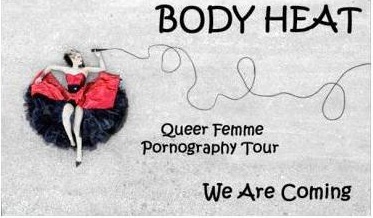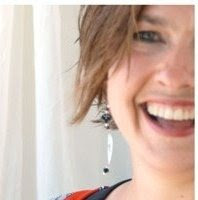"Real" Butch
I’ve been defending you a lot recently in ways I never would have back when I was you. You never used the term Real Butch, hated that essentializing, that narrowing of focus, that erasure of all the other queer possibilities of the masculine gendering the female flesh. Nowadays, now and again, I tell the ones who ask me, OK, yeah, I was a Real Butch.
They can’t hear the “but…” but you do, I know it, I can feel you peeling behind my teeth, wanting to push out the whole story, wanting me to keep on telling it like it was—and is—how there’s no such goddamn thing as a real butch and butch is as ze says it is, whoever’s wearing the skin on that body, but we both know that’s always in question, right?
The truth is I’m still grateful to you for the ways you made me know I could be safe in the world and although just recently we, you and me, got told that we had a privileged coming out because there was the semblance of a community at school when I put 2 and 2 together and got gay and because I came out into a place where gayness was relatively acceptable—we both remember that there was not much safe about my life then and your hands had had to go places they were never meant to visit and you carried all the heavy boxes of our terror and you opened the doors for our future possibility – all the things, yes, that a goddamn real butch is supposed to do. You found a way to fit this me, now, into your curvature and flank, into your faggy footwork on the dance floor under the smoke machine’s smog and the one starry sad set of flashing red green and gold lights at the local bar.
And here’s what I want you to know now: I’m sorry we didn’t make it out any deeper before my plumage and finery found its way back out again, before the girl was made possible again and you had to slide that fine black leather motorcycle jacket off your shoulders for the last time – it just doesn’t fit now; I’d wear it for you if it could. But I mean, I’m sorry that we never found those bars, those old smoky hinges of solidarity where you could have shaped and strapped the hard gear of your masculine future, where you could have butted heads with other women willing to ride the hard truth of this existence; goddamnit, I mean I’m sorry you never got to be a real butch with other real butches, be looked upon as something or someone right not just novel or different or brave or odd or whatever. Not as just a shield, but as a real self.
I want you to know I believed in you and needed you in those years, and, of course, it’s not like I can’t feel how you shaped my walk, or how you get me in trouble still, assuming I can make eye contact with anyone on the street and have it be the right safe thing to do.
Here’s what I mean to say – that there’s never anything false about us when one identity shifts and slides into another. We both know that girl wasn’t a safe place to be all those years and you stepped up like a butch does and you made a handful of things a little safer. I know I’m not supposed to say these things: we spent so much time pulling up the roots of our history to find the nascent butch inside and just look, just look where we are now—
Labels: butch, identity, trauma aftermath, writing



 Most of the pieces I performed on this year’s
Most of the pieces I performed on this year’s 

